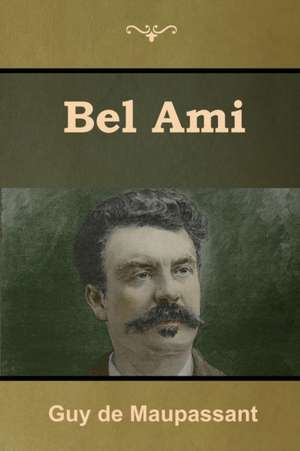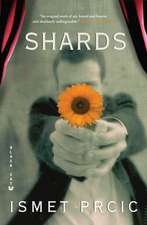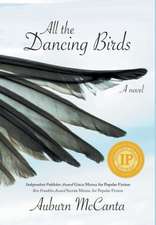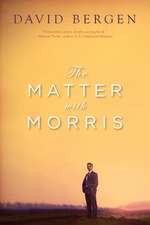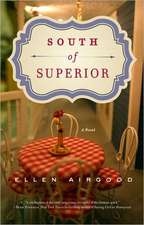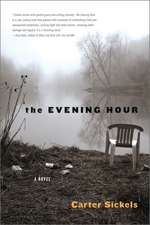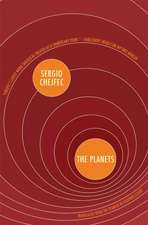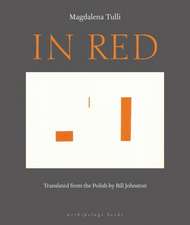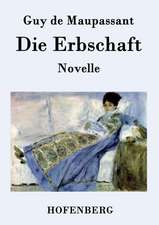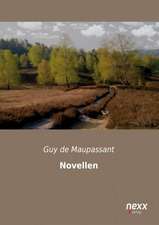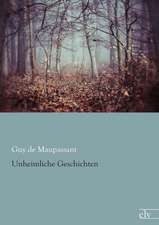Bel Ami
Autor Guy de Maupassanten Limba Engleză Paperback – 27 iul 2019
| Toate formatele și edițiile | Preț | Express |
|---|---|---|
| Paperback (7) | 54.38 lei 22-36 zile | |
| – | 54.38 lei 22-36 zile | |
| Digireads.com – 19 sep 2020 | 59.82 lei 43-57 zile | |
| Bibliotech Press – 27 iul 2019 | 92.24 lei 43-57 zile | |
| Bibliotech Press – 8 mar 2014 | 92.28 lei 43-57 zile | |
| Indoeuropeanpublishing.com – 31 mai 2010 | 99.44 lei 43-57 zile | |
| Vintage Books USA – 30 sep 2010 | 124.09 lei 43-57 zile | |
| TREDITION CLASSICS – 31 oct 2011 | 148.02 lei 43-57 zile | |
| Hardback (1) | 183.54 lei 43-57 zile | |
| Bibliotech Press – 28 iul 2019 | 183.54 lei 43-57 zile |
Preț: 92.24 lei
Nou
Puncte Express: 138
Preț estimativ în valută:
17.65€ • 18.32$ • 14.75£
17.65€ • 18.32$ • 14.75£
Carte tipărită la comandă
Livrare economică 17-31 martie
Preluare comenzi: 021 569.72.76
Specificații
ISBN-13: 9781618956279
ISBN-10: 1618956272
Pagini: 130
Dimensiuni: 152 x 229 x 8 mm
Greutate: 0.2 kg
Editura: Bibliotech Press
ISBN-10: 1618956272
Pagini: 130
Dimensiuni: 152 x 229 x 8 mm
Greutate: 0.2 kg
Editura: Bibliotech Press
Notă biografică
The French writer Guy de Maupassant (1850-93), a protégé of Flaubert, was known for his hugely influential short stories and the vivid realism of his novels. He was born in Normandy and served in the Franco-Prussian War, which would become the subject of some of his best-known stories. Maupassant wrote six novels and nearly three hundred stories, among them “The Necklace,” “Boule de Suif,” “The Horla,” and “Mademoiselle Fifi.” His financial and critical success as a writer made him a prominent figure in fashionable society, but in his last few years he suffered mental and physical symptoms of the syphilis he had contracted in his early years. After a suicide attempt in 1892 he was committed to a private asylum, where he died the following year at the age of 42.
Extras
PART I
I
WHEN the cashier had given him the change out of his five-franc piece, George Duroy left the restaurant.
As he had a good carriage, both naturally and as an ex-soldier, he threw out his chest, twirled his moustache with a familiar, military gesture, and threw upon the lingering customers a rapid and sweeping glance—one of those self-assured glances which take in everything, like a casting net.
The women looked up at him—three little working girls, a music mistress of uncertain age, disheveled, untidy, and wearing a bonnet always dusty and a dress always awry; and two women of the middle class dining with their husbands, all regular customers at this cheap chop-house.
When he got outside on the footpath, he stood still for a moment, and wondered what he would do. It was the 28th of June, and he had just three francs forty centimes in his pocket to carry him to the end of the month. This meant a choice between two dinners without lunch and two lunches without dinner. He reflected that, as the earlier meals cost twenty sous apiece, and the later thirty, if he were content with the lunches, he would be one franc twenty centimes to the good, which would further represent two snacks of bread and sausage and two bocks of beer on the boulevards. The latter was his greatest extravagance and his chief pleasure at night.
He began to descend the Rue Notre-Dame de Lorette. He walked as in the days when he had worn a hussar uniform, his chest thrown out and his legs slightly apart, as if he had just left his horse, and he shoved his way through the crowded street, pushing and shouldering people rather than step aside. He wore his rather shabby tall hat slightly to one side, and brought his heels smartly down on the pavement. He always seemed to be defying somebody or something, the passers-by, the houses, the whole city, with the swagger of a dashing military man turned civilian.
Although wearing a sixty-franc suit, he was not without a certain loud elegance which was a little vulgar. Tall, well-built, fair, with a curly moustache twisted up at the ends, bright blue eyes with small pupils, and reddish-brown hair curling naturally and parted in the middle, he bore a strong resemblance to the dare-devil of· popular romances.
It was one of those summer evenings on which there is no air in Paris. The city, hot as an oven, seemed to swelter in the stifling night. The sewers breathed out their poisonous breath through their granite mouths, and the underground kitchens gave forth to the street through their windows the stench of dishwater and stale sauces. The concierges in their shirtsleeves, astride strawbottomed chairs within the carriage entrances, were smoking their pipes, and the pedestrians were walking with flagging steps and bare heads, their hats in their hands.
When George Duroy reached the boulevards he paused again, undecided as to what he should do. He now thought of going on to the Champs Elysées and the Avenue du Bois de Boulogne to get a little fresh air under the trees, but another wish also assailed him, a desire for a love affair.
What shape would it take? He did not know, but he had been awaiting it for three months, night and day. Occasionally, thanks to his good looks and gallant bearing, he stole a few crumbs of love here and there, but he was always hoping for something more and better.
With empty pockets and his blood in a ferment, he kindled at the contact of the prowlers who murmur at street corners: "Will you come home with me, dear?" but he dared not follow them, not being able to pay them, and, besides, he was waiting for something else, other less vulgar kisses.
He liked, however, the localities in which women of the town swarm — their balls, their cafés, and their streets. He liked to rub shoulders with them, speak to them, make love to them, inhale their strong perfumes, feel himself near them. They were women at any rate, women made for love. He did not despise them with the innate contempt of a well-born man.
He turned towards the Madeleine, following the flux of the crowd which flowed along, overcome by the heat.. The chief cafés, filled with customers, were overflowing on to the footpath, and displayed their drinking public under the dazzling glare of their illuminated windows. In front of them, on little tables, square or round, were glasses holding liquids of every shade, red, yellow, green, brown, and inside the decanters glittered the large transparent cylinders of ice, serving to cool the bright, clear water. Duroy had slackened his pace, and a longing to drink parched his throat.
A hot thirst, a summer evening's thirst assailed him and he thought of the delightful sensation of cool drinks flowing down his throat. But if he even drank two bocks of beer in the evening, farewell to the slender supper of the morrow, and he was only too well acquainted with the hungry hours of the end of the month.
He said to himself: "I must hold out till ten o'clock, and then I'll have my bock at the Café Américain. Confound it, how thirsty I am, though." And he scanned the men seated at the tables drinking, and the people who could quench their thirst as much as they pleased. He went on, passing in front of the cafés with a sprightly, swaggering air, and guessing at a glance, from their dress and bearing, how much money each customer must have about him. Wrath against these people quietly sitting there rose up within him. If their pockets were rummaged, gold, silver, and coppers would be found in them. On an average each one must have at least two louis. There were certainly a hundred to a café, a hundred times two louis is four thousand francs. He murmured "the swine," as he walked gracefully past them. If he could have got hold of one of them at a nice dark corner he would have twisted his neck without scruple, as he used to do the country-folk's fowls during manoeuvres.
And he recalled his two years in Africa and the way in which he used to pillage the Arabs when stationed at little out-posts in the south. A bright and cruel smile flitted across his lips at the recollection of an escapade which had cost the lives of three men of the Ouled-Alane tribe, and had furnished him and his comrades with a score of fowls, a couple of sheep, some gold, and food for laughter for six months.
The culprits had never been found, and, what is more, they had hardly been looked for, the Arab being looked upon as somewhat in the light of the natural prey of the soldier.
In Paris it was different. One could not plunder prettily, sword by side and revolver in hand, far from civil authority, at liberty. He felt in his heart all the instincts of a corporal let loose in a conquered country. He certainly regretted his two years in the desert. What a pity he had not stopped there. But, then, he had hoped for something better on returning home. And now—ah! yes, now it was lovely!
He clicked his tongue as if to verify the parched state of his palate.
The crowd moved past him slowly and exhaustedly, and he kept thinking. "Set of hogs — all these idiots have money in their pockets." He pushed against people and softly whistled a lively tune. Gentlemen whom he thus elbowed turned grumbling, and women murmured: "What a brute!"
He passed the Vaudeville Theatre and stopped before the Café Américain, wondering whether he should not take his bock, so greatly did his thirst torture him. Before making up his mind, he glanced at the illuminated clocks in the middle of the street. It was a quarter past nine. He knew himself: as soon as the glass full of beer was before him he would gulp it down. What would he do then up to eleven o'clock?
He thought for a moment. "I will go as far as the Madeleine," he said, "and walk back slowly."
I
WHEN the cashier had given him the change out of his five-franc piece, George Duroy left the restaurant.
As he had a good carriage, both naturally and as an ex-soldier, he threw out his chest, twirled his moustache with a familiar, military gesture, and threw upon the lingering customers a rapid and sweeping glance—one of those self-assured glances which take in everything, like a casting net.
The women looked up at him—three little working girls, a music mistress of uncertain age, disheveled, untidy, and wearing a bonnet always dusty and a dress always awry; and two women of the middle class dining with their husbands, all regular customers at this cheap chop-house.
When he got outside on the footpath, he stood still for a moment, and wondered what he would do. It was the 28th of June, and he had just three francs forty centimes in his pocket to carry him to the end of the month. This meant a choice between two dinners without lunch and two lunches without dinner. He reflected that, as the earlier meals cost twenty sous apiece, and the later thirty, if he were content with the lunches, he would be one franc twenty centimes to the good, which would further represent two snacks of bread and sausage and two bocks of beer on the boulevards. The latter was his greatest extravagance and his chief pleasure at night.
He began to descend the Rue Notre-Dame de Lorette. He walked as in the days when he had worn a hussar uniform, his chest thrown out and his legs slightly apart, as if he had just left his horse, and he shoved his way through the crowded street, pushing and shouldering people rather than step aside. He wore his rather shabby tall hat slightly to one side, and brought his heels smartly down on the pavement. He always seemed to be defying somebody or something, the passers-by, the houses, the whole city, with the swagger of a dashing military man turned civilian.
Although wearing a sixty-franc suit, he was not without a certain loud elegance which was a little vulgar. Tall, well-built, fair, with a curly moustache twisted up at the ends, bright blue eyes with small pupils, and reddish-brown hair curling naturally and parted in the middle, he bore a strong resemblance to the dare-devil of· popular romances.
It was one of those summer evenings on which there is no air in Paris. The city, hot as an oven, seemed to swelter in the stifling night. The sewers breathed out their poisonous breath through their granite mouths, and the underground kitchens gave forth to the street through their windows the stench of dishwater and stale sauces. The concierges in their shirtsleeves, astride strawbottomed chairs within the carriage entrances, were smoking their pipes, and the pedestrians were walking with flagging steps and bare heads, their hats in their hands.
When George Duroy reached the boulevards he paused again, undecided as to what he should do. He now thought of going on to the Champs Elysées and the Avenue du Bois de Boulogne to get a little fresh air under the trees, but another wish also assailed him, a desire for a love affair.
What shape would it take? He did not know, but he had been awaiting it for three months, night and day. Occasionally, thanks to his good looks and gallant bearing, he stole a few crumbs of love here and there, but he was always hoping for something more and better.
With empty pockets and his blood in a ferment, he kindled at the contact of the prowlers who murmur at street corners: "Will you come home with me, dear?" but he dared not follow them, not being able to pay them, and, besides, he was waiting for something else, other less vulgar kisses.
He liked, however, the localities in which women of the town swarm — their balls, their cafés, and their streets. He liked to rub shoulders with them, speak to them, make love to them, inhale their strong perfumes, feel himself near them. They were women at any rate, women made for love. He did not despise them with the innate contempt of a well-born man.
He turned towards the Madeleine, following the flux of the crowd which flowed along, overcome by the heat.. The chief cafés, filled with customers, were overflowing on to the footpath, and displayed their drinking public under the dazzling glare of their illuminated windows. In front of them, on little tables, square or round, were glasses holding liquids of every shade, red, yellow, green, brown, and inside the decanters glittered the large transparent cylinders of ice, serving to cool the bright, clear water. Duroy had slackened his pace, and a longing to drink parched his throat.
A hot thirst, a summer evening's thirst assailed him and he thought of the delightful sensation of cool drinks flowing down his throat. But if he even drank two bocks of beer in the evening, farewell to the slender supper of the morrow, and he was only too well acquainted with the hungry hours of the end of the month.
He said to himself: "I must hold out till ten o'clock, and then I'll have my bock at the Café Américain. Confound it, how thirsty I am, though." And he scanned the men seated at the tables drinking, and the people who could quench their thirst as much as they pleased. He went on, passing in front of the cafés with a sprightly, swaggering air, and guessing at a glance, from their dress and bearing, how much money each customer must have about him. Wrath against these people quietly sitting there rose up within him. If their pockets were rummaged, gold, silver, and coppers would be found in them. On an average each one must have at least two louis. There were certainly a hundred to a café, a hundred times two louis is four thousand francs. He murmured "the swine," as he walked gracefully past them. If he could have got hold of one of them at a nice dark corner he would have twisted his neck without scruple, as he used to do the country-folk's fowls during manoeuvres.
And he recalled his two years in Africa and the way in which he used to pillage the Arabs when stationed at little out-posts in the south. A bright and cruel smile flitted across his lips at the recollection of an escapade which had cost the lives of three men of the Ouled-Alane tribe, and had furnished him and his comrades with a score of fowls, a couple of sheep, some gold, and food for laughter for six months.
The culprits had never been found, and, what is more, they had hardly been looked for, the Arab being looked upon as somewhat in the light of the natural prey of the soldier.
In Paris it was different. One could not plunder prettily, sword by side and revolver in hand, far from civil authority, at liberty. He felt in his heart all the instincts of a corporal let loose in a conquered country. He certainly regretted his two years in the desert. What a pity he had not stopped there. But, then, he had hoped for something better on returning home. And now—ah! yes, now it was lovely!
He clicked his tongue as if to verify the parched state of his palate.
The crowd moved past him slowly and exhaustedly, and he kept thinking. "Set of hogs — all these idiots have money in their pockets." He pushed against people and softly whistled a lively tune. Gentlemen whom he thus elbowed turned grumbling, and women murmured: "What a brute!"
He passed the Vaudeville Theatre and stopped before the Café Américain, wondering whether he should not take his bock, so greatly did his thirst torture him. Before making up his mind, he glanced at the illuminated clocks in the middle of the street. It was a quarter past nine. He knew himself: as soon as the glass full of beer was before him he would gulp it down. What would he do then up to eleven o'clock?
He thought for a moment. "I will go as far as the Madeleine," he said, "and walk back slowly."
